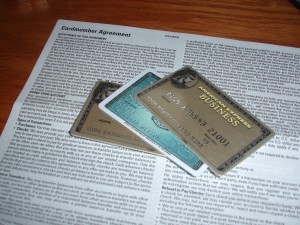 Today’s top story: Why you should pay your credit card bill before it’s due. Also in the news: How to break a bad money habit, what the IRS is doing to prevent identity theft, and how one late mortgage payment can wreak havoc with your credit score.
Today’s top story: Why you should pay your credit card bill before it’s due. Also in the news: How to break a bad money habit, what the IRS is doing to prevent identity theft, and how one late mortgage payment can wreak havoc with your credit score.
4 Reasons to Pay Your Credit Card Bill Before It’s Due
Improving your credit score is one of them.
How to Change a Bad Money Habit
Reward yourself for better behavior.
IRS Aims Harder to Protect You Against Identity Theft
New steps to protect tax payers.
Will Obamacare Ruin Your Tax Refund?
Probably not.
How Much a Late Mortgage Payment Can Damage Your Credit Score
A single late payment could pack a wallop.





